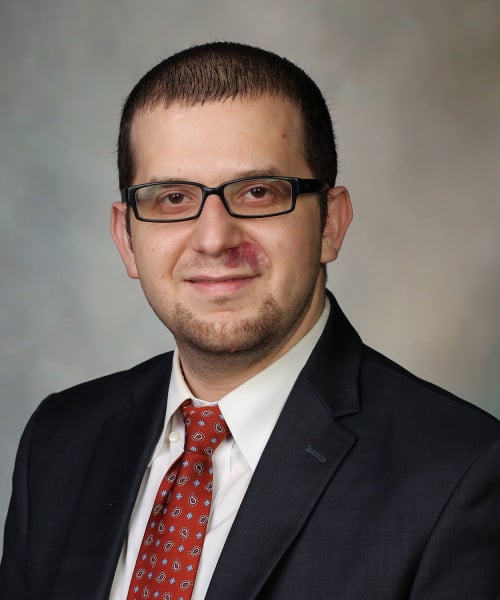November is Gastric Cancer Awareness Month. Also known as stomach cancer, gastric cancer is an abnormal growth of cells that form in the main part of the stomach, while affecting any part.
In 2020 it was the sixth most common cancer, with 1.09 million new cases, according to the World Health Organisation, and the fifth most common cause of cancer death. It is common in certain parts of the world that include South America and Asia.
Mayo Clinic medical oncologist Mohamad Sonbol, M.D. shares five insights into the current state of diagnosis, screening, and treatment for gastric cancer:
![mohamad-sonbol-15546969.jpeg mohamad-sonbol-15546969.jpeg]() Endoscopy is usually the initial step in diagnosing gastric cancer. It allows physicians to diagnose, stage, and treat some cancers at early stages. Using the endoscope, they can go in and remove localised and superficial abnormal growths. If physicians detect gastric cancer, they use a CT and positron emission tomography to scan for further staging;
Endoscopy is usually the initial step in diagnosing gastric cancer. It allows physicians to diagnose, stage, and treat some cancers at early stages. Using the endoscope, they can go in and remove localised and superficial abnormal growths. If physicians detect gastric cancer, they use a CT and positron emission tomography to scan for further staging;- Unlike in East Asia, where gastric cancer is more common, screening for gastric cancer is not recommended in the general population. However, screening protocols are in place for people at higher risk. Risk factors include obesity, smoking, alcohol consumption, and family history;
- Surgery is an option for patients whose cancer has not spread and those who have cancer that can be removed in surgery. Surgery is the only curative approach for patients with localised or locally advanced gastric cancer. Other treatments, such as systemic therapy and radiation, maximise the chance of cure and lower the risk of the cancer returning;
- New therapeutic options are available for gastric cancer. The US Food and Drug Administration approved the combination of chemotherapy with nivolumab, an immunotherapeutic drug, in metastatic gastric adenocarcinoma. Fam-trastuzumab deruxtecan-nxki, which is administered as an infusion, is now an option for patients with HER2-positive metastatic gastric cancer;
- Some immunotherapeutics are standard care and some are in studies. Chemotherapy kills cells all over the body, while immunotherapy wakes up the immune system to fight cancer. In general, chemotherapy works for a while and then stops. When immunotherapy works, it is usually for a longer time. Which regimen to choose depends on the different targets of the cancer cells.
"I tell patients who have been recently diagnosed with gastric cancer that there is hope," Dr. Sonbol says. "We now have many more treatment options than before."


 Endoscopy is usually the initial step in diagnosing gastric cancer. It allows physicians to diagnose, stage, and treat some cancers at early stages. Using the endoscope, they can go in and remove localised and superficial abnormal growths. If physicians detect gastric cancer, they use a CT and positron emission tomography to scan for further staging;
Endoscopy is usually the initial step in diagnosing gastric cancer. It allows physicians to diagnose, stage, and treat some cancers at early stages. Using the endoscope, they can go in and remove localised and superficial abnormal growths. If physicians detect gastric cancer, they use a CT and positron emission tomography to scan for further staging;